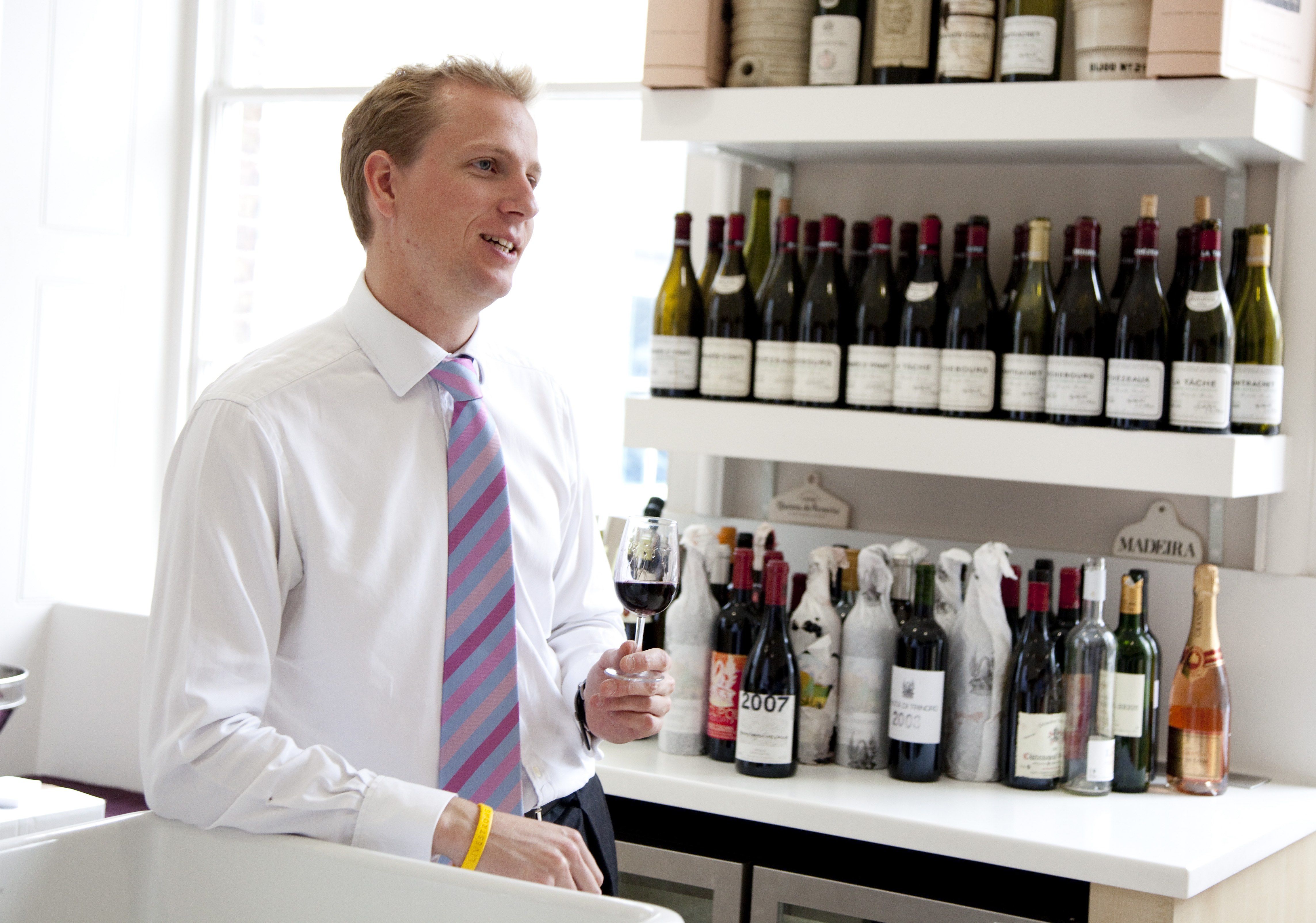What makes a five star hotel such a pleasure to stay in is often down to how they get the little details, those added value touches, right. That’s what James Franklin hopes its on-trade customers think Corney & Barrow can provide as he strives to keep its service one step ahead of what restaurants, bars and hotels might want.
If you are young, start-up wine importer looking to make your way in the world, it might seem a little strange – if not completely disheartening –to hear a business, that has been selling wine and spirits in the UK for over 230 years, talk about still having to prove itself to on-trade buyers and sommeliers.
But that’s the position that James Franklin, Corney & Barrow’s associate director and head of merchant sales, still feels like he is in with many potential restaurant or bar customers.
Not that he is complaining. Far from it. In fact he would be disappointed if it was not always like that, for there is no room for complacency when it comes to being a leading wine and spirits merchant and distributor.
In his mind you are only as good as your last delivery, and should quite rightly be judged on how well you have treated a particular customer on any given day, with any set order.
It’s why so much of our engaging conversation is spent talking about relationships, partnerships and doing all it can, as Corney & Barrow, to convince its customers to work just that little bit more with them. To come back to it for all the additional services it can provide.
As he explains: “It’s all about building up successful business relationships and adding layers to that through every touch point we have with our customers. Be it the van driver, the customer service team, or through the wine training.”
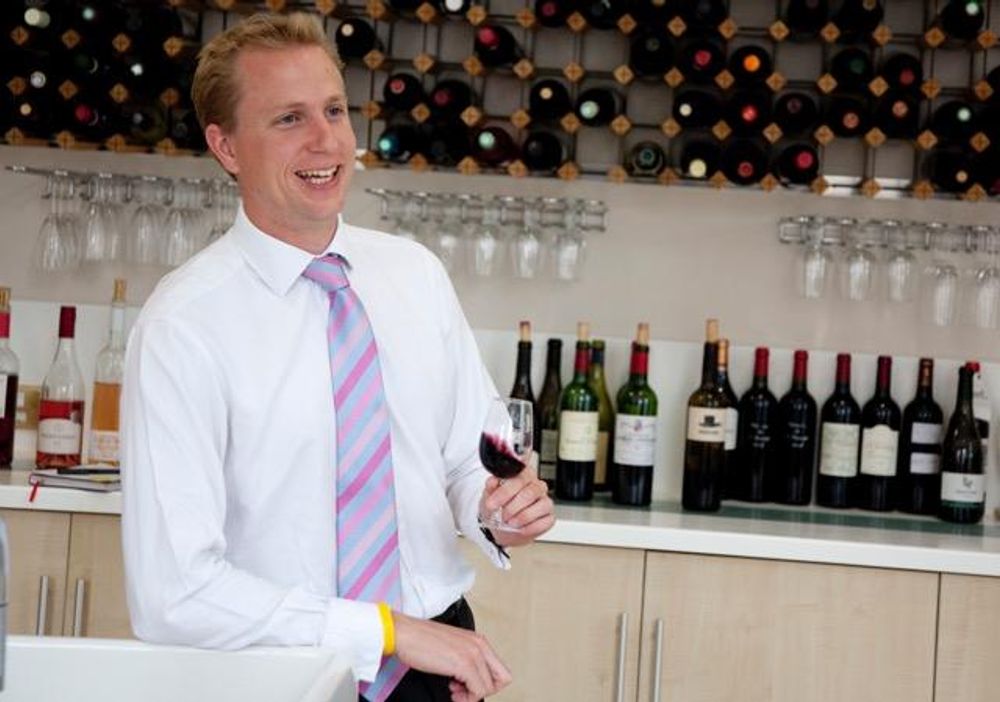
James Franklin says a lot of the role of a wine supplier should be about helping its customers save time and manage their costs
Understanding your customers
To do that, stresses Franklin, you have to spend time out in the market, watching, listening and talking to customers so you genuinely understand the pressures they are under and how you, as one of their key suppliers, can help them.
“We very much recognise how valuable time now is to our customers. One of the most rewarding comments I have had recently, from one customer, is how Corney & Barrow makes the impossible possible. Why placing an order with our customer services team only takes a couple of minutes of their time, compared to over eight minutes with one of our competitors.”
This, he adds, makes a considerable difference to restaurants and bars that now have so much more pressure on their time and where all aspects of the business are being squeezed back to the minimum to cope with rising rates, labour costs and supplier bills. “We need our customers to know that they can rely us,” he stresses. “The cost of doing business is becoming even more apparent.”
After all every minute spent trying to sort out a problem, is a minute they can’t get back. “It’s about doing the simple things right. We trust a lot in our sales teams. How they operate carries a lot of weight.”
All about the service
Looking in from the outside you might think a large part of a wine merchant’s job is getting its product offer right.The right wines and spirits at the right prices. Just the right number of New Zealand Sauvignon Blancs, wines that give their customers the chance to sell them quickly, order more, and push cash through the business.
That’s, surely, where all the time and energy goes. To a large degree yes, and you are not going to get very far if you do not have a professional drinks range. But to many customers, buyers, and operations managers all of that is a given, stresses Franklin. What they really want to know is how good are you at doing the most important part of the relationship and getting the right drinks to the right place at the right time.
He explains: “When we are doing pitches, say for a large catering contract, a big part of that will be about proving our reliability, and our availability and delivery rates. The cost of doing business is becoming even more apparent than ever before and transcends the bottle cost alone.”
It is where so much of Corney & Barrow’s investment goes, adds Franklin. “So much so that the service element of our business is now running at 99.3% on deliveries out of our Hoddesdon, London warehouse. A lot of that is running our own vans with our own drivers out. In fact, our customers probably see more of our drivers than they do of us.”
It also means being honest and open with its customers so that they can manage their own businesses if there is a problem at all. “Saying we can’t do something is as important sometimes as promising we can,” explains Franklin.
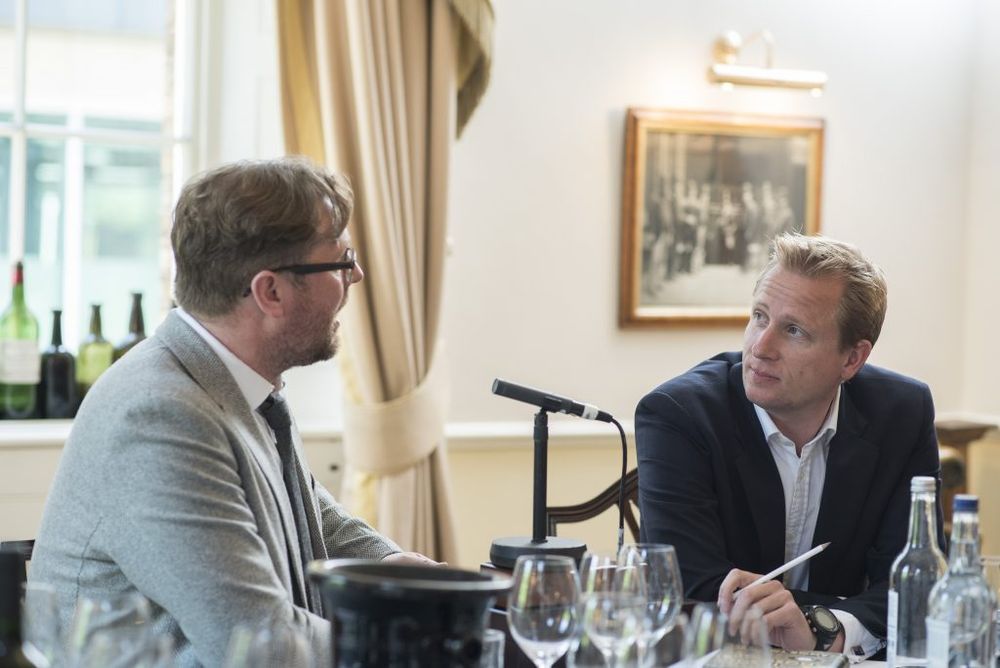
A recent new initiative has been a series of podcasts, A Book and a Bottle, where broadcaster Damian Bar, left, will discuss novels with authors whilst the Corney & Barrow team pick out a suitable wine to sip whilst reading it
Working to the long term
It’s where Franklin believes Corney & Barrow does have an advantage over some of its competitors in that it it can always take a long term view on how it is operating rather than always be looking to hit a monthly or quarterly target.
“The great thing about being independently financially owned is that everything we do can be planned out for the medium to long term future. We want to do things properly and we want to do them well,” says Franklin.
“We are also a nice size as a business. We are big enough to benefit from economies of scale, but small enough to be able to offer the right level of service and support to our customers.”
That also means being able to work internally between different teams and departments, be it buying, sales, marketing or warehousing.
On-trade focus
Although Corney & Barrow may be close to its 250th anniversary a lot of that time was spent serving private customers and paying customers in its network of bars, rather than the trade itself. It has only really been in the last 15 years or so it has had a dedicated business channel working directly with restaurant bars and its on-trade customers.
A division that Franklin has helped develop since he joined the business in July 2002 from what was then Majestic’s own fledging commercial division. “When I first started our Scottish and north of England on-trade business was doing particularly well, a success we were keen to emulate in the south – and still are! the south. So it has been a case of developing our regional teams, particularly in London.”
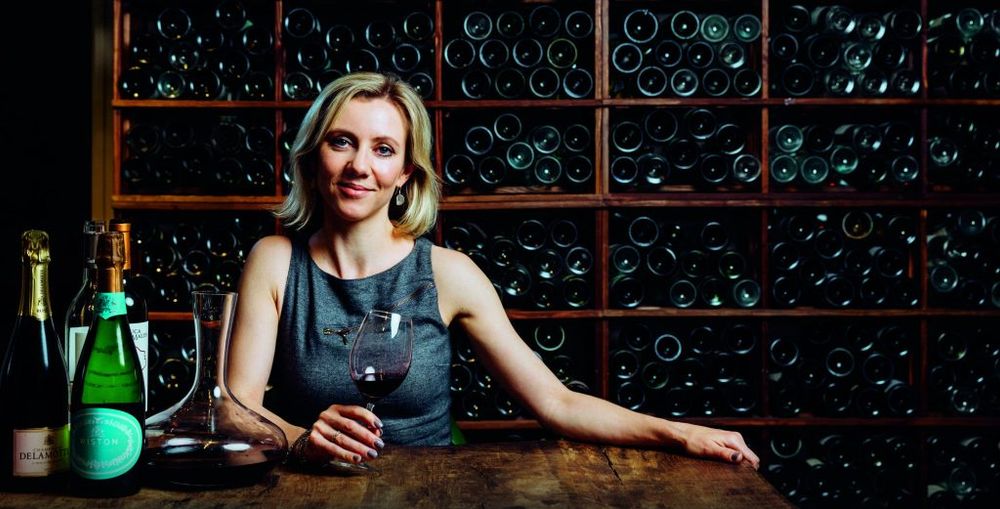
Corney & Barrow’s Rebecca Palmer joining the business in 2006 has been vital in ensuring its wine credentials are widely respected, says Franklin
He says one of the big turning points for Corney & Barrow’s on-trade business was when head buyer Rebecca Palmer joined the businessin 2006. “She very quickly recognised what we needed to build the business and get the attention of restaurant customers. But also her sales skills and knowledge is as good as her buying ones,” he says.
2006 proved to be a pivotal year for its on-trade business with the decision to separate out its supply chain, logistics and warehousing functions which really gave the company the expertise and flexibility to grow, says Franklin. Improved warehousing capacity also gives the business “scaleability” and allows it to “draw on extra resources when we need them”.
Which is in area it is already doing feasible studies in, to prepare for the different outcomes of Brexit, reveals Franklin. “Do we hold, for example, six to nine months of key lines in the UK?”
Looking for new business
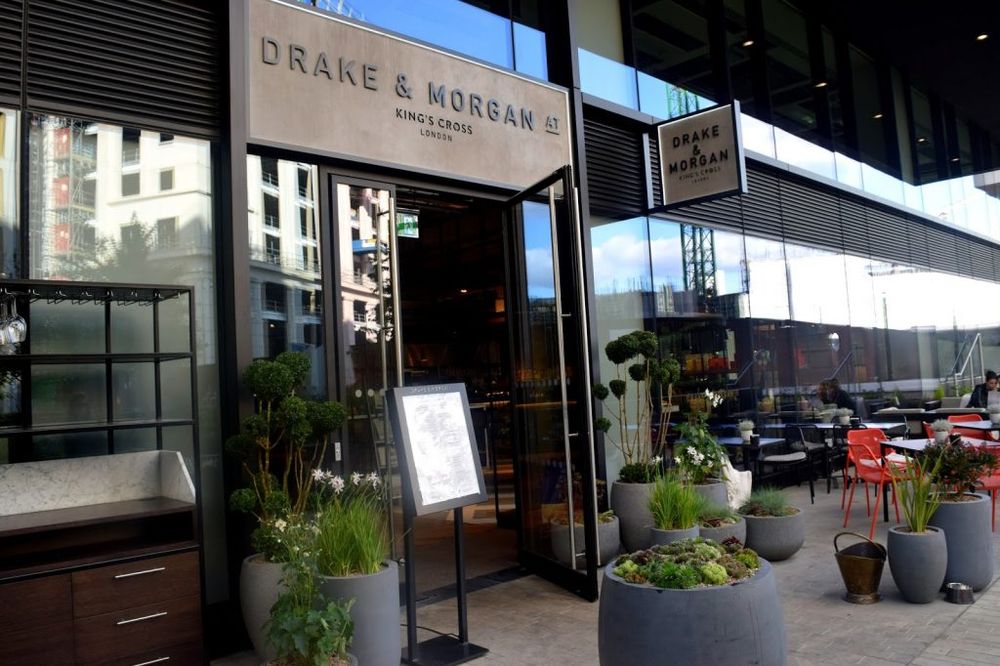
Arguably the most important aspect of Corney & Barrow’s decision to sell its bars to Drake & Morgan was ensuring it had control of the drinks supply to its growing estate of bars and restaurants
It also means Corney & Barrow is well placed to work with a wide range of customers from smaller, medium sized to larger groups. It is clearly well placed to have an on-going relationship with the Drake & Morgan group, that purchased the bar side of Corney & Barrow in July 2016. That deal means Corney & Barrow will continue to be its main wine supplier for the following few years.
It has worked hard in recent years to pitch and win major tenders for contract caterers, cruise ship companies, airlines, and the like, as a way of diversifying away from just relying on high street operators.
It has, for example, got a long standing partnership with the Cunard and P&O cruise business which has really opened up new opportunities for the company, says Franklin. “That’s an incredible project to work on,” he adds.
It gives a whole new meaning to working with a partner as any training or support includes time on the ship, often giving wine talks and courses to both staff and guests. It’s also a great opportunity for Corney & Barrow’s winemakers to go on board and do a special tasting which is as memorable for them as it is the passengers.
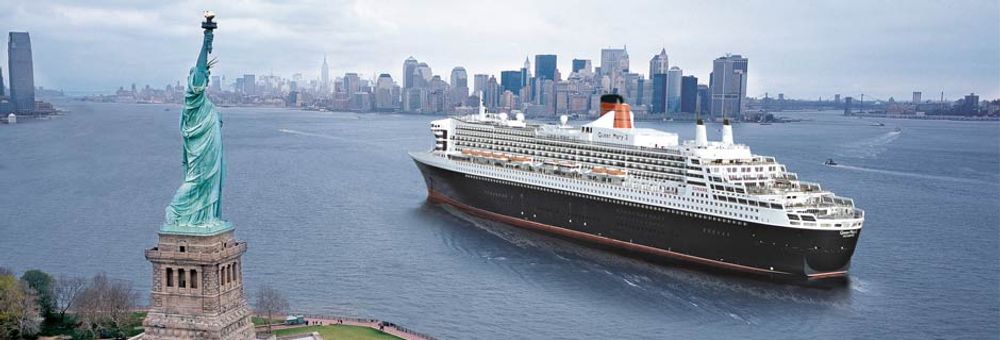
All aboard for a cruise and wine experience…
“Customers, though, now recognise that wine is so much more important and part of the overall eating experience than before. Cruise ships, for example, pride themselves on their food and drink offer.
“You have to be constantly looking at your offer and investing more in quality whilst remembering for every pound people are willing to pay more, their expectation of the quality will go up even more.”
It appears to be working as the on-trade division of Corney & Barrow continues to grow. London remains key, accounting for between 65% to 75% of in the south and £12m sales, out of total Corney & Barrow revenues of £55m.
Crucially it has a wide mix of on-trade customers, and an increasing number of customers where it is the sole supplier. “People might be surprised to hear that the bulk of the wine we sell to the trade is under £10 a bottle. So we are always working hard to ensure we have a good house wine and above offer. But we never buy wine just for the sake of it. There has to be a reason and we won’t compromise on quality.”
Equally if a customer wants a rare vintage of Domaine de la Contée then it can use its broker service to find it.
Using its own assets
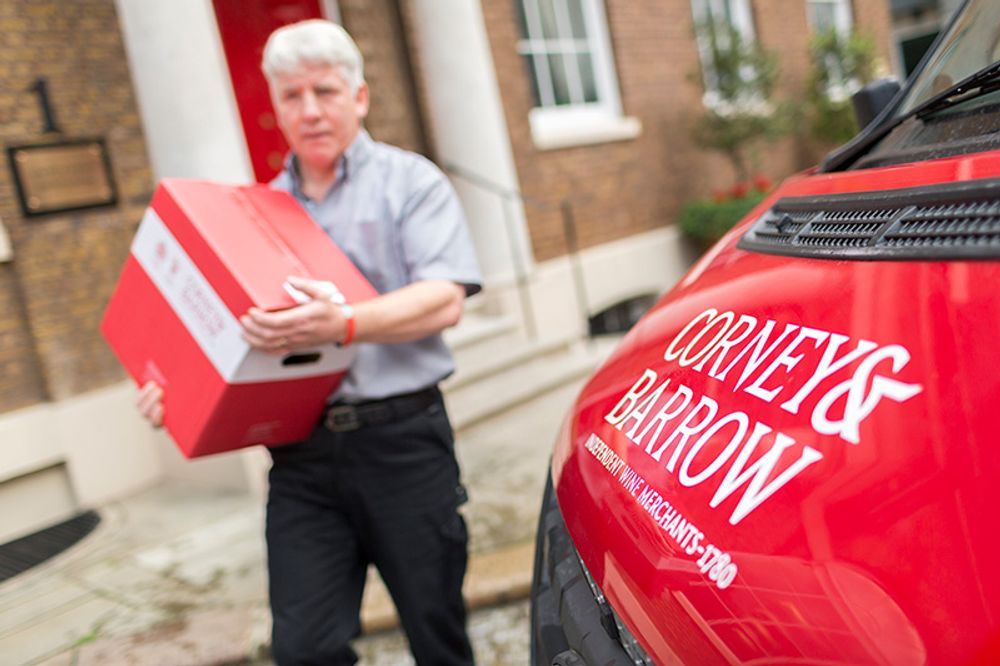
Getting the bar in time…it’s vital for Corney & Barrow’s image
Corney & Barrow is also working hard to ensure it uses all the assets within its own company to maximum effect. With such a long standing, loyal and knowledgeable private customer base, for example, it makes sense to invite and include them with any activities, promotions or events they are doing with in their on-trade customers.
“A lot of that comes down to adding value to the relationships we already have,” explains Franklin. “Our customers want new people coming through their doors so it makes sense to invite our private customers to their events and their outlets. They also know and like their wine, so are good customers to have.”
Equally the relationships it has been able to build up for decades with winemakers and producers around the world will hopefully put it in a bette position to deal with the shortages of wine now in the market after the bad 2017
global harvest. “Times like this means those long term relationships really count,” he says.
Finding the right people
One of the areas it really takes its time over is recruiting new members of staff. Which is not surprising considering how long staff tend to stay with the company once they have joined. Franklin, himself, has already clocked up 15 years.
“It is why we spend so much time making sure we recruit the right kind of people who can build those relationships with our customers. We want to invest more in what we can control.”
That does not mean it is looking for the same kind of person as it needs different personalities, backgrounds and experiences to fill all its various roles. “We don’t pigeon hole people here,” he explains.
It all comes back to having the right kind of staff that then allows Corney & Barrow as a group to offer a better, more tailored service to its customers, explains Franklin. “We are all very aware of our responsibilities.”
Customer support
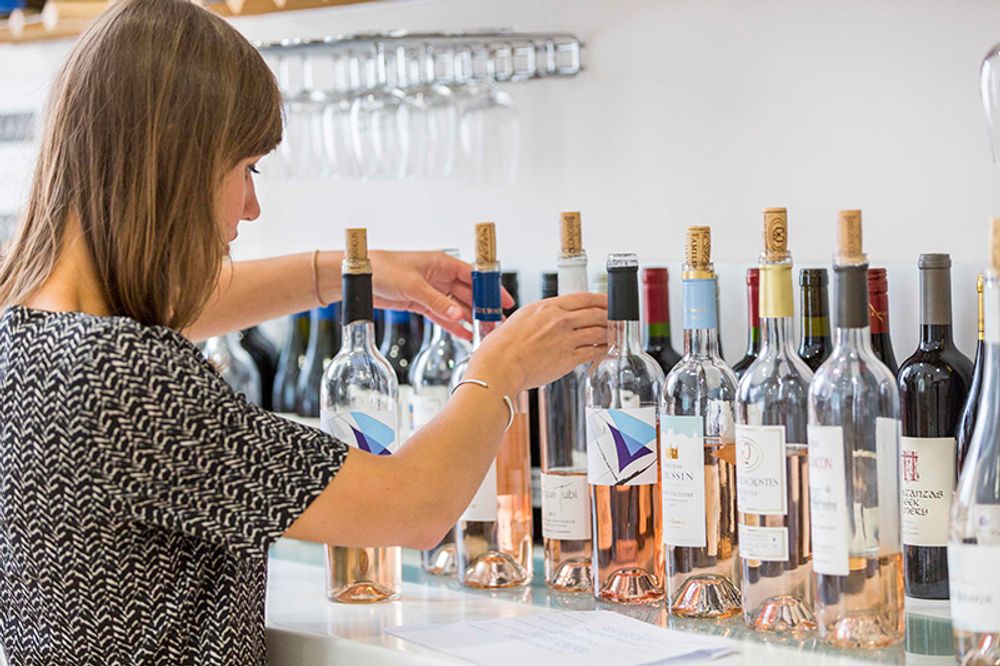
Allowing its customers’ staff to learn about wine in a fun, engaging way that has real commercial, on the floor benefits is how Corney & Barrow approaches its wine training
Its approach to customer training is particularly interesting. There is no one set syllabus or off the peg modules for training managers to use. Instead the training is tailored to the needs of its customers, stresses Franklin.
“We recognise a lot of the time when working with pubs and restaurants you are training young people who are not going to be in that business for long. So how do you engage with them? We ask them how can we help them sell more wine and potentially make more money. We look to make it fun and not concentrate too much on the terroir or region, but the name of the wine, the story behind it, things they can remember and tell their customers. It’s great to make wine come alive.”
A lot of that work comes down to Camilla Nash, who heads up on-trade training, and her team. She joined two years ago and has worked hard to offer tailored programmes particularly for those operators, mainly outside London, where it is the sole supplier.“Having the experience of running our own bars and working so closely with Drake & Morgan is also important,” says Franklin.
But it is not a blanket approach, says Franklin. It is careful to cherry pick the right staff members in outlets and within operators who they think would benefit most from say going on a WSET course. “The mistake people often make with training is they see it as a box ticking exercise. We prefer to identify the people who have a real passion and enthusiasm for wine and then involve them more in the training,” he explains.
It’s an approach that has worked for Corney & Barrow for 230 plus years, so long may it continue.
